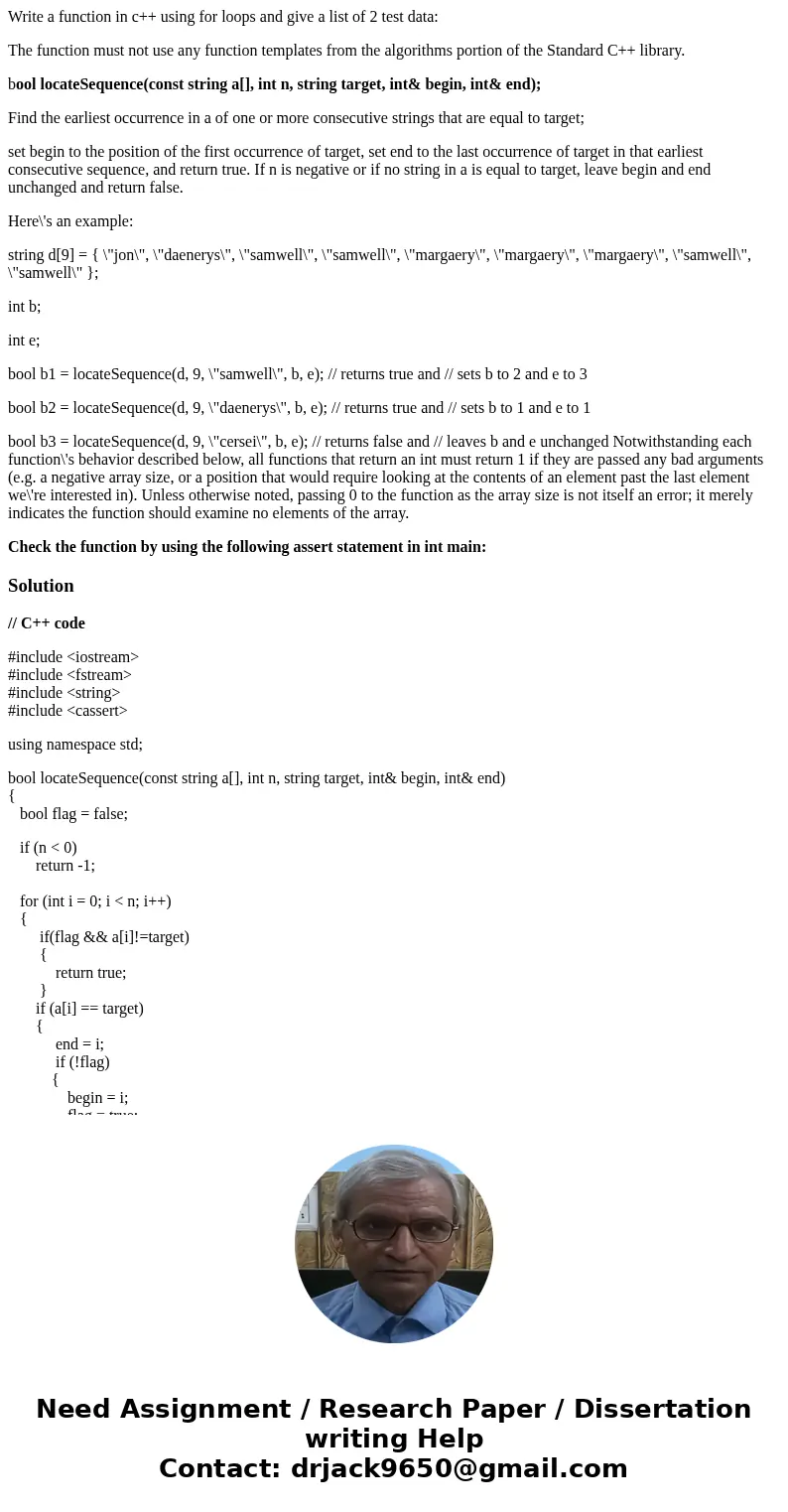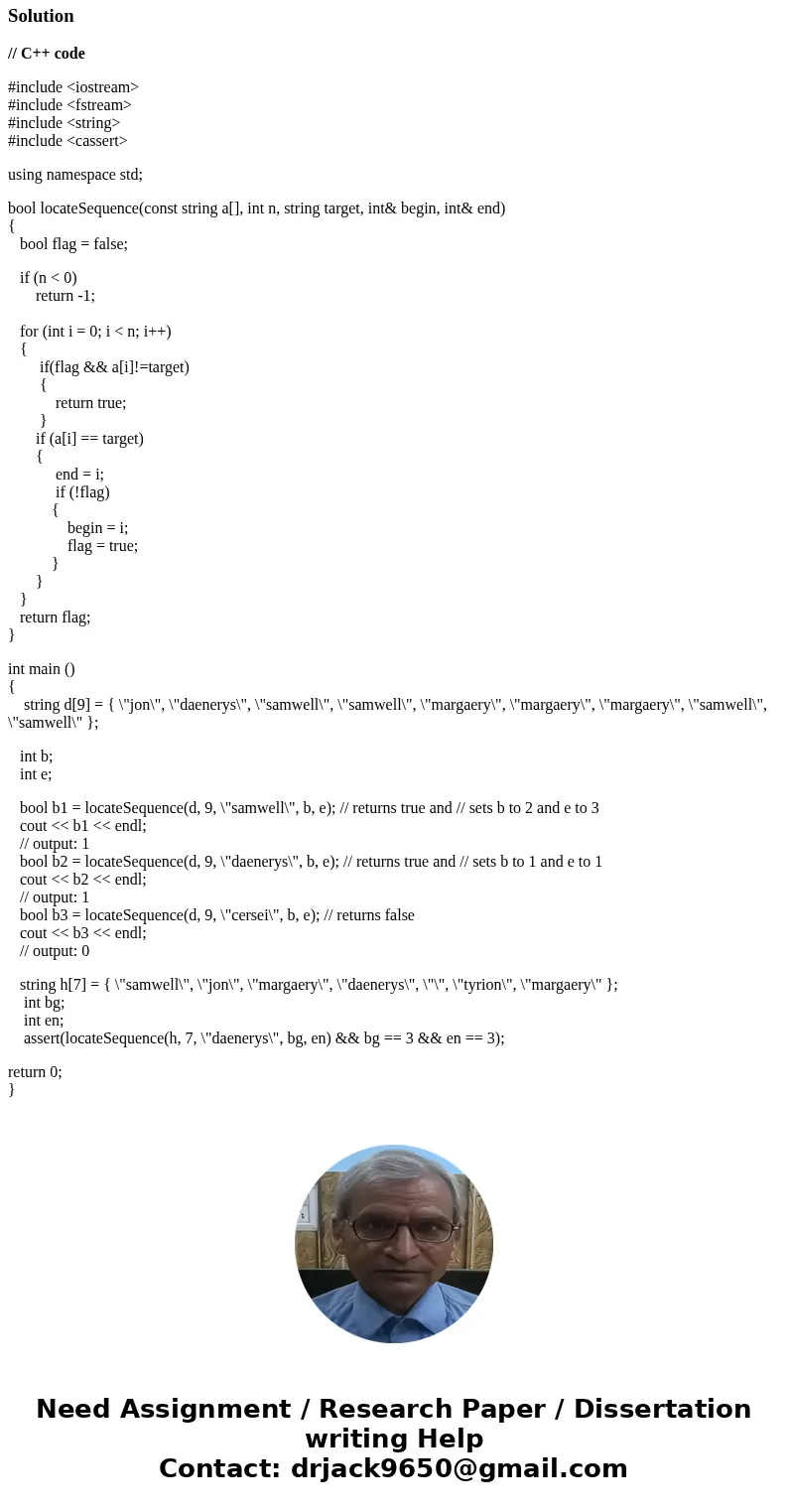Write a function in c using for loops and give a list of 2 t
Write a function in c++ using for loops and give a list of 2 test data:
The function must not use any function templates from the algorithms portion of the Standard C++ library.
bool locateSequence(const string a[], int n, string target, int& begin, int& end);
Find the earliest occurrence in a of one or more consecutive strings that are equal to target;
set begin to the position of the first occurrence of target, set end to the last occurrence of target in that earliest consecutive sequence, and return true. If n is negative or if no string in a is equal to target, leave begin and end unchanged and return false.
Here\'s an example:
string d[9] = { \"jon\", \"daenerys\", \"samwell\", \"samwell\", \"margaery\", \"margaery\", \"margaery\", \"samwell\", \"samwell\" };
int b;
int e;
bool b1 = locateSequence(d, 9, \"samwell\", b, e); // returns true and // sets b to 2 and e to 3
bool b2 = locateSequence(d, 9, \"daenerys\", b, e); // returns true and // sets b to 1 and e to 1
bool b3 = locateSequence(d, 9, \"cersei\", b, e); // returns false and // leaves b and e unchanged Notwithstanding each function\'s behavior described below, all functions that return an int must return 1 if they are passed any bad arguments (e.g. a negative array size, or a position that would require looking at the contents of an element past the last element we\'re interested in). Unless otherwise noted, passing 0 to the function as the array size is not itself an error; it merely indicates the function should examine no elements of the array.
Check the function by using the following assert statement in int main:
Solution
// C++ code
#include <iostream>
#include <fstream>
#include <string>
#include <cassert>
using namespace std;
bool locateSequence(const string a[], int n, string target, int& begin, int& end)
{
bool flag = false;
if (n < 0)
return -1;
for (int i = 0; i < n; i++)
{
if(flag && a[i]!=target)
{
return true;
}
if (a[i] == target)
{
end = i;
if (!flag)
{
begin = i;
flag = true;
}
}
}
return flag;
}
int main ()
{
string d[9] = { \"jon\", \"daenerys\", \"samwell\", \"samwell\", \"margaery\", \"margaery\", \"margaery\", \"samwell\", \"samwell\" };
int b;
int e;
bool b1 = locateSequence(d, 9, \"samwell\", b, e); // returns true and // sets b to 2 and e to 3
cout << b1 << endl;
// output: 1
bool b2 = locateSequence(d, 9, \"daenerys\", b, e); // returns true and // sets b to 1 and e to 1
cout << b2 << endl;
// output: 1
bool b3 = locateSequence(d, 9, \"cersei\", b, e); // returns false
cout << b3 << endl;
// output: 0
string h[7] = { \"samwell\", \"jon\", \"margaery\", \"daenerys\", \"\", \"tyrion\", \"margaery\" };
int bg;
int en;
assert(locateSequence(h, 7, \"daenerys\", bg, en) && bg == 3 && en == 3);
return 0;
}


 Homework Sourse
Homework Sourse